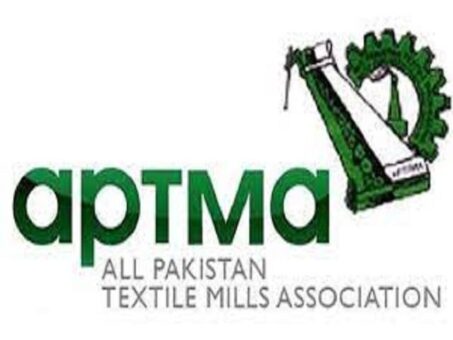Islamabad, October 25, 2024 – The All Pakistan Textile Mills Association (APTMA) has made a strong appeal for a substantial reduction in interest rates, calling for a 4% cut to help stimulate economic recovery, create fiscal space for public expenditures, and support the survival of key industries.
APTMA’s proposal comes ahead of the Monetary Policy Committee (MPC) meeting scheduled for November 4, 2024, where the committee will review the discount rate.
Currently, the interest rate stands at 17.5%, which APTMA deems unsustainable given the current economic conditions. With inflation dropping to 6.9% in September 2024, the real interest rate now sits at an elevated 10.6%. The association argues that this rate is excessively high and does not reflect the significant reduction in inflation over the past year. Since November 2023, inflation has consistently declined, but the MPC has been slow to adjust its monetary policy to match these changes.
APTMA highlighted that, according to data from the Pakistan Bureau of Statistics (PBS), inflation fell to 11.1% in July 2024 and further to 6.9% in September 2024. Despite this steady decline, the MPC has kept interest rates high, creating substantial financial strain on businesses. The high real interest rates have made borrowing prohibitively expensive for industries that rely on capital to sustain operations, expand, and invest in innovation.
The textile sector, which is crucial to Pakistan’s economy as a leading exporter and a major source of employment, has been particularly hard-hit by these high borrowing costs. Over the past two years, textile manufacturers have faced severe liquidity shortages, hampering their ability to secure working capital and make necessary investments. APTMA warned that without affordable financing, many businesses are struggling to survive, let alone grow.
APTMA emphasized that the current high interest rates are deterring investment in critical sectors, including textiles, which is the largest export-oriented industry in Pakistan. Without access to affordable credit, industries cannot modernize, innovate, or compete effectively on the global stage. This not only threatens Pakistan’s export potential but also endangers the livelihoods of millions of workers in the sector.
The association stressed that the MPC must realign its monetary policy to stimulate economic growth. With inflation now under control, APTMA believes there is a clear justification for a 400 basis point reduction in interest rates. Such a cut would ease the financial burden on businesses, promote investment, boost productivity, and create jobs.
APTMA concluded by urging the MPC to take decisive action in the upcoming meeting, emphasizing that a substantial cut in interest rates is essential for stabilizing the economy and supporting the growth of vital industries. Aligning monetary policy with current inflation trends is necessary to foster economic recovery and ensure long-term stability.
